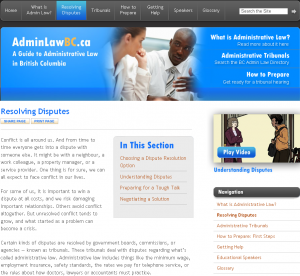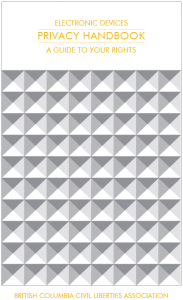Resolving Disputes
 Have you ever had a conflict with someone in your life? Did you ignore it and hope it would go away? Did you hire a lawyer to argue your case at all costs to “win”? Did you do something inbetween? There are many different ways to handle conflict.
Have you ever had a conflict with someone in your life? Did you ignore it and hope it would go away? Did you hire a lawyer to argue your case at all costs to “win”? Did you do something inbetween? There are many different ways to handle conflict.
For certain types of conflict, one option may be to take your case to an administrative tribunal to decide. There are many costs associated with this option. It can cost you money, energy, and time. It can also damage your relationship with the person with whom you have a conflict, and you may not get the result that you want.
The Justice Education Society, in partnership with the BC Council of Administrative Tribunals and with funding from the Ministry of Justice, has created a new section on their Administrative Law website on Resolving Disputes before they escalate. This includes four animated videos:
- Choosing a Dispute Resolution Option
- Understanding Disputes
- Preparing for a Tough Talk
- Negotiating a Solution
The messages are clear and concise, offering simple yet effective suggestions you can choose to try out to resolve a conflict before it escalates. My favourite is Preparing for a Tough Talk. Have a look and post your thoughts on our blog!
The Administrative Law BC site also includes a glossary of terms used in administrative law and administrative hearings (tribunals), and a directory of tribunals in BC.
Another option to consider for certain types of conflict is mediation. For more information on this option, check out Clicklaw’s common question What can mediation help me with? And if you want to get legal advice about a conflict, you can find legal help in your community on Clicklaw’s HelpMap.




